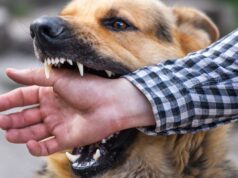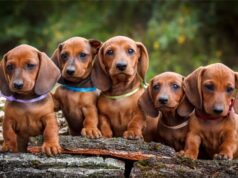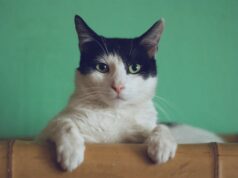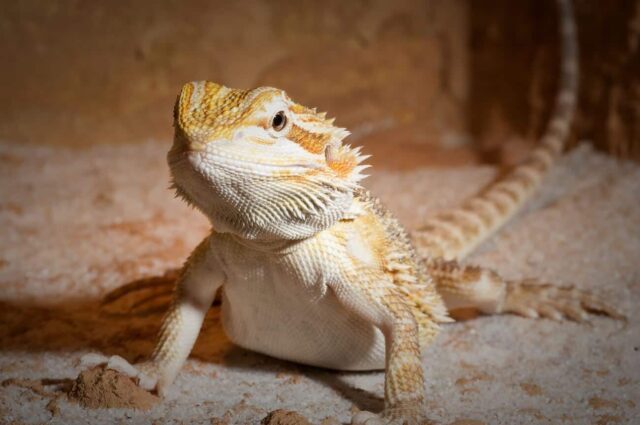
If you are a reptile lover and want to own one, then a bearded dragon can be a perfect choice for you. They have a soft character and long life span, making them an idle pet option.
However, being an owner, it will be your responsibility to take care of all its needs and requirements, which mainly includes taking care of their diet and nutrition. In this article, we will be studying in-depth the nutrition requirements of these reptiles.
Although it is not challenging to feed bearded dragons, you must have proper knowledge about their needs. Providing them a good diet will keep their health in check and help increase their life span and maintain its colors brighter. If you are not experienced in this field, then this guide will help you teach you about the dietary requirements of bearded dragons.
Their nutrition plan can be a little complicated for beginners because it consists of both vegetarian and non-vegetarian food. They need water at least twice a day and food approximately 4-5 times. However, their frequency of eating also depends upon the season and their age. If you are looking for some more insights about it, consider checking out www.topflightdubia.com.
Dietary Requirements of Bearded Dragon
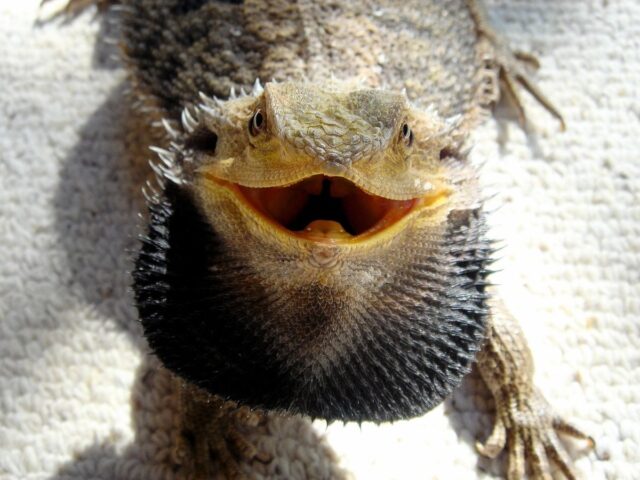
As mentioned earlier, these reptiles are omnivores, which means that they are dependent on both plants and animals for their food. They can consume insects, small lizards, and plants daily. Most of the time, they usually feed on any insect that comes in their way. Insects are an essential part of their diet, and you should make sure that they are getting enough of it. Let us now check out some of their favorite insects to eat.
Favorite insects: Butterworms, cockroaches, earthworms, black soldier fly, locusts, redworms, crickets, super worms, and dubia roaches.
They usually feed on any insects that come their way, but some are not considered suitable for them. If you want to keep your pet healthy, you have to learn what is healthy and unhealthy for them. Some of the insects that your bearded dragon must not be fed include elder bugs, glowing insects, bees, wasps, fireflies, scorpions, etc.
When you feed insects to your reptile, let it eat how much it can in 15 minutes, and after that, collect the remaining food. It is essential because you don’t want to make your pet overeat and then become unhealthy.
Vegetables to feed: Vegetables form an essential portion of their dietary requirements, and also they are very readily available in the market. There are large varieties of veggies that you can feed them. Some of the valuable veggies that must be given to them in large portions are:
● Collards
● Mustard greens
● Endive
● Dandelion greens
● Green beans
● Sweet potato
● Butternut squash
● Okra
● Yellow squash
● parsnips
Whenever you feed bearded dragon vegetables, make sure that they are finely chopped, so it becomes effortless for them to eat. Never provide them any food whose size is too large. Apart from the above essential veggies, there are occasional vegetables that you can feed them a maximum of twice per week. These include broccoli, cauliflower, carrots, zucchini, pumpkin, basil, celery leaves, parsley, green peas, etc.
Nutrition Requirements of Baby Reptiles
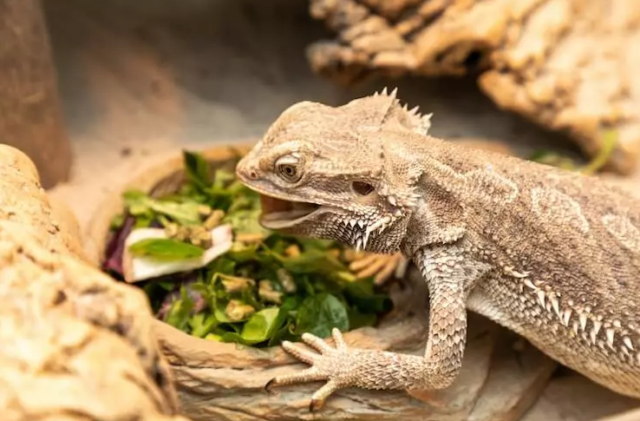
We all now understand the importance of protein for young kids, and the same goes with these baby reptiles. Baby bearded dragons require a good amount of protein that is essential for their growth and muscle building. Such a requirement can be fulfilled by feeding them more with insects rather than simple vegetables. Their frequency of consuming food is also higher than the older reptiles. In general, they must be provided 4-5 times per day.
All the reptiles tend to get more attracted to insects than veggies. But you should start training your baby dragon to eat vegetables from its early stages only. To do this, it is always suggested to feed them plant matter first and then provide the insects. Otherwise, if you feed these two together, they will ultimately try to ignore the plant matter.
Some Safety Concerns About Bearded Dragons
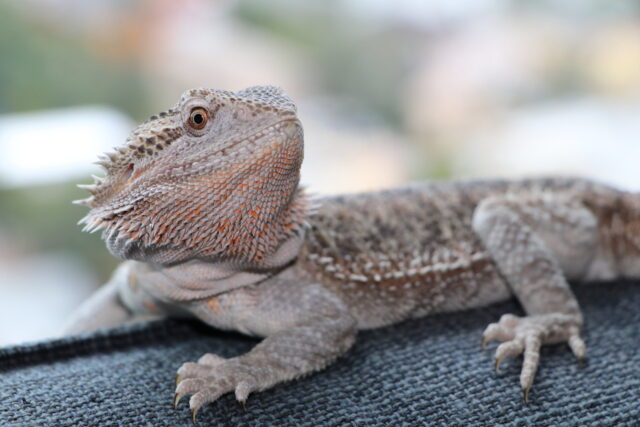
These popular lizards are not very tough to feed. They are made to survive the hot climatic conditions, and they don’t even require much water to survive. However, it would help if you always kept the below safety concerns in mind while feeding them to keep them healthy and safe.
● While consuming insects or plant matter, they can accidentally ingest unwanted materials such as gravel or sand, which is not suitable for them. If they consume such particles, it can upset their digestive system, leading to severe health problems.
Adult reptiles have pretty good skills in eating their food, which means this problem is much more concerned with the baby reptiles. Therefore, the owners must always be careful while feeding them. It is suggested not to feed these reptiles in a place that contains sand or pebbles. The best thing would be to use bowls or even your hands to provide them food.
● The food must always be smaller in size so that they can eat it properly. The size of food to be fed can be estimated by looking at the space between its eyes. Food having width more prominent than this space should be avoided or chopped correctly before feeding them.
● Do not overfeed the bearded dragons because it can make them obese, further leading to various health issues. Try to avoid giving them insects that have high-fat content in them.
To Sum Up
If you are searching for a reptile to bring in your family, bearded dragons can be a friendly option because of their soft temperament and long life. However, before you get one to your home, make sure to understand its dietary requirements.

